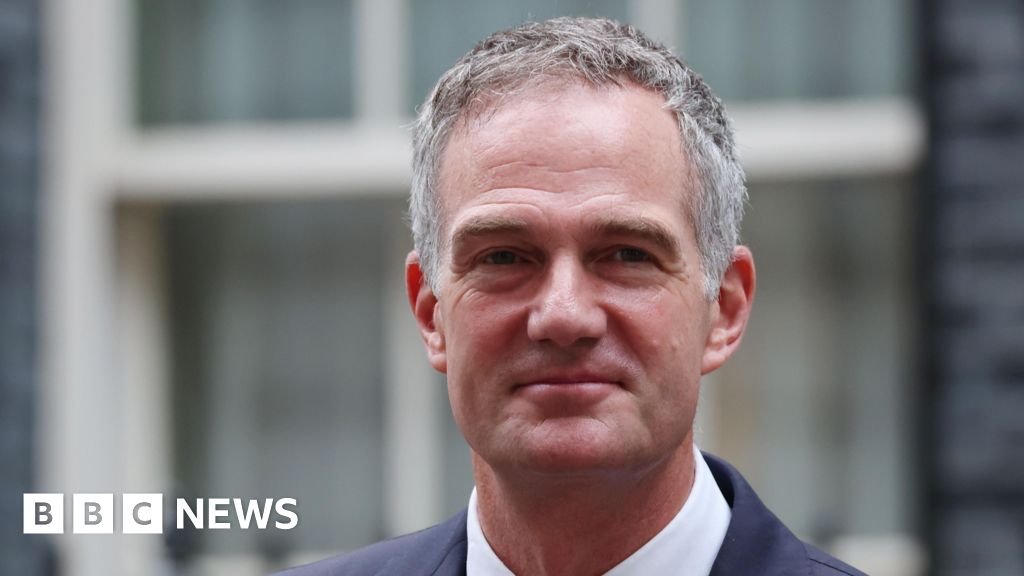Science and Technology Minister Peter Kyle has written to the UK’s National Institute of Artificial Intelligence (AI) to tell bosses to refocus on defense and security.
Kyle said in a letter that improving Britain’s AI capabilities is “critical” to national security and should be at the heart of the Alan Turing Institute’s activities.
Kyle suggested that the institute should overhaul its leadership team to reflect its “new goals.”
The Cabinet minister said the government’s further investment in the institute will depend on the “delivery of the vision” outlined in his letter.
A spokesman for the Alan Turing Institute said it welcomes “recognition of our critical role and will continue to work closely with the government to support its priorities”.
“Turing focuses on supporting Britain’s sovereign AI capabilities, including high-impact missions including national defense and national security,” the spokesperson said.
“We share the government’s vision for AI to make the UK better.”
The letter comes as Prime Minister Sir Keir Starmer is committed to increasing UK defence spending to 5 per cent by 2035 and investing in the military uses of AI technology.
A recent government review of the British Ministry of Defense said: “The direct priority for the shift in force should be the shift to greater use of autonomy and artificial intelligence”.
The institute, under the leadership of Prime Minister David Cameron’s administration in 2015, added AI to its quota two years later.
It received public funds, and the Conservative government received a grant of £100 million last year.
The Turing Institute’s work focuses on three major areas of AI and data science research – environmental sustainability, health and national security.
Recently, the institute has focused more on responsible AI and ethics, and one of its recent reports is about the increasing use of technology by romance scammers.
But Kyle’s letter shows that the government hopes the Turing Institute will make defense a priority, which will be a key key for the organization.
“ATI has a chance to seize this moment,” Kyle wrote in a letter to Dr. Douglas Gurr, chairman of the institute.
“I believe the institute should develop with its existing strengths and further reform its priorities to defense, national security and sovereignty capabilities.”
It has been a turbulent few months for the institute, which is in survival mode in 2025.
The government funding agency reviewed UK research and innovation last year and found “a clear need for the governance and leadership structure of the institute”.
At the end of 2024, 93 employees signed a letter expressing a lack of confidence in their leadership team.
In March, Jean Innes, who was appointed CEO in July 2023, said in an interview with the Financial Times that Turing needs to modernize and focus on AI projects.
“There is a significant strategic shift to the more focused agenda on a few issues that have an impact on the real world,” she said.
In April, chief scientist Mark Girolami said in an interview that the organization will propose only 22 projects from 104 portfolios.
Kyle’s letter said the institute “should continue to obtain the funds needed to implement the reform and provide Turing 2.0.”
But he said ATI’s “long-term funding arrangements” may be reviewed next year.
Using AI in defense is both controversial and powerful.
Google’s parent company Alphabet faced criticism earlier this year for lifting a ban on developing AI weapons.
Meanwhile, the British military and other forces are already investing in tools that support AI.
The government’s defense review says AI technology “will provide higher accuracy, fatality and cheaper features”.
The review said that “unautonomous and autonomous systems” could be used within the conventional forces in the UK over the next five years.
In one example, the review said the Royal Navy could use “an acoustic detection system powered by artificial intelligence” to monitor “underwater threats to modern Russian submarine forces.”
NATO spending targets The UK has committed to involving at least 3.5% of its core defense, while security-related investments are as high as 1.5%.
When asked about any government funding from the Alan Turing Institute will now rely on defense spending targets, Downing Street said 1.5% of security elements will include “investment that improves the overall resilience of our society.”
Technology company Palantir has provided data operations software to the British armed forces.
Louis Mosley, head of Palantir in the UK, told the BBC that it would be a good idea to shift the institute’s focus to AI defense technology.
He said: “Now we are facing a arduous combination of dark geopolitical and technological revolutions – the world becomes even more dangerous at the moment when AI changes war and deterrence.
“What it means in practice is that we are now in an AI arms race with our opponents.
“Government is right, we need to invest all the resources we have to stay ahead of the curve – because that is the best way for us to maintain peace.”
Other reports from senior technical journalist Chris Vallance
